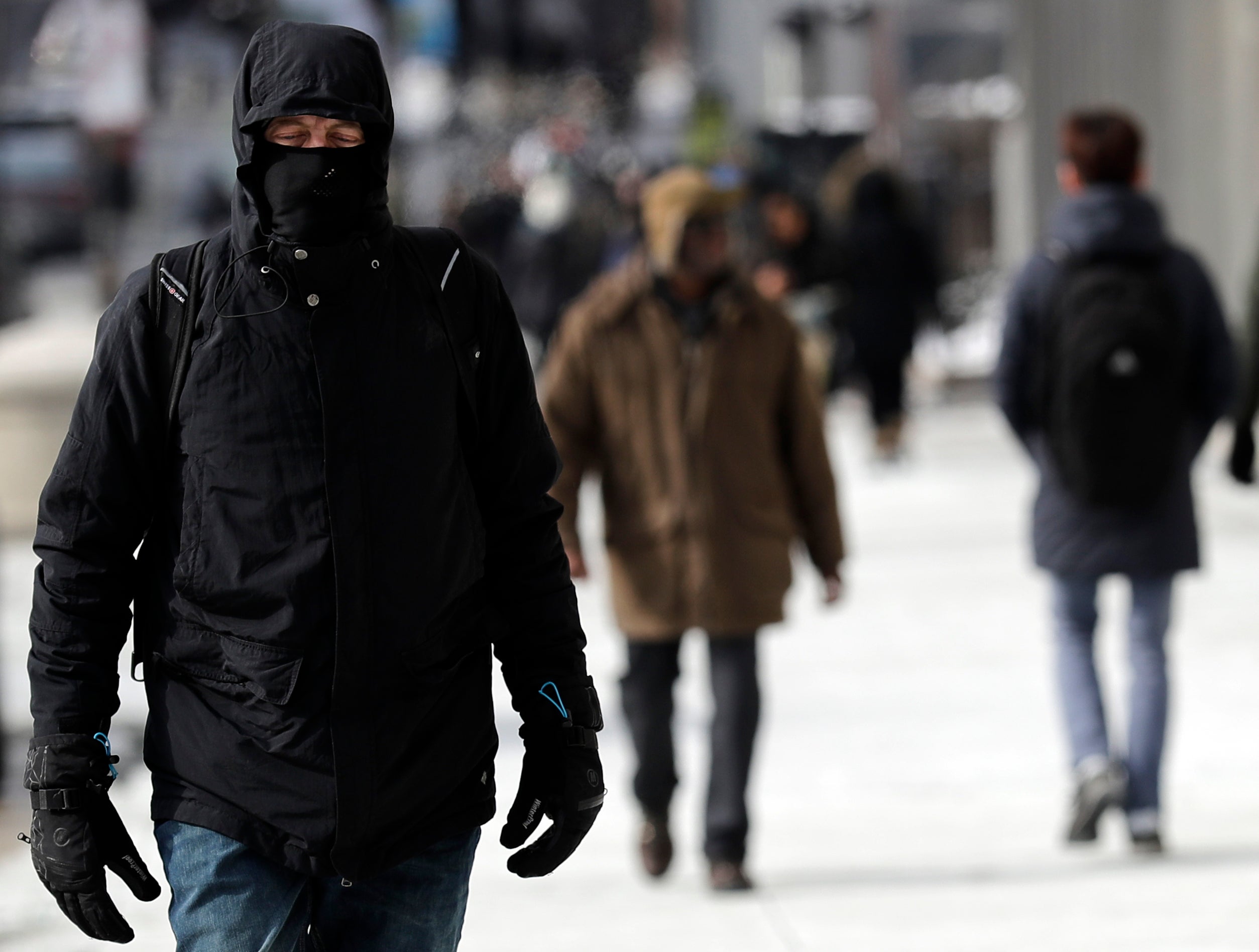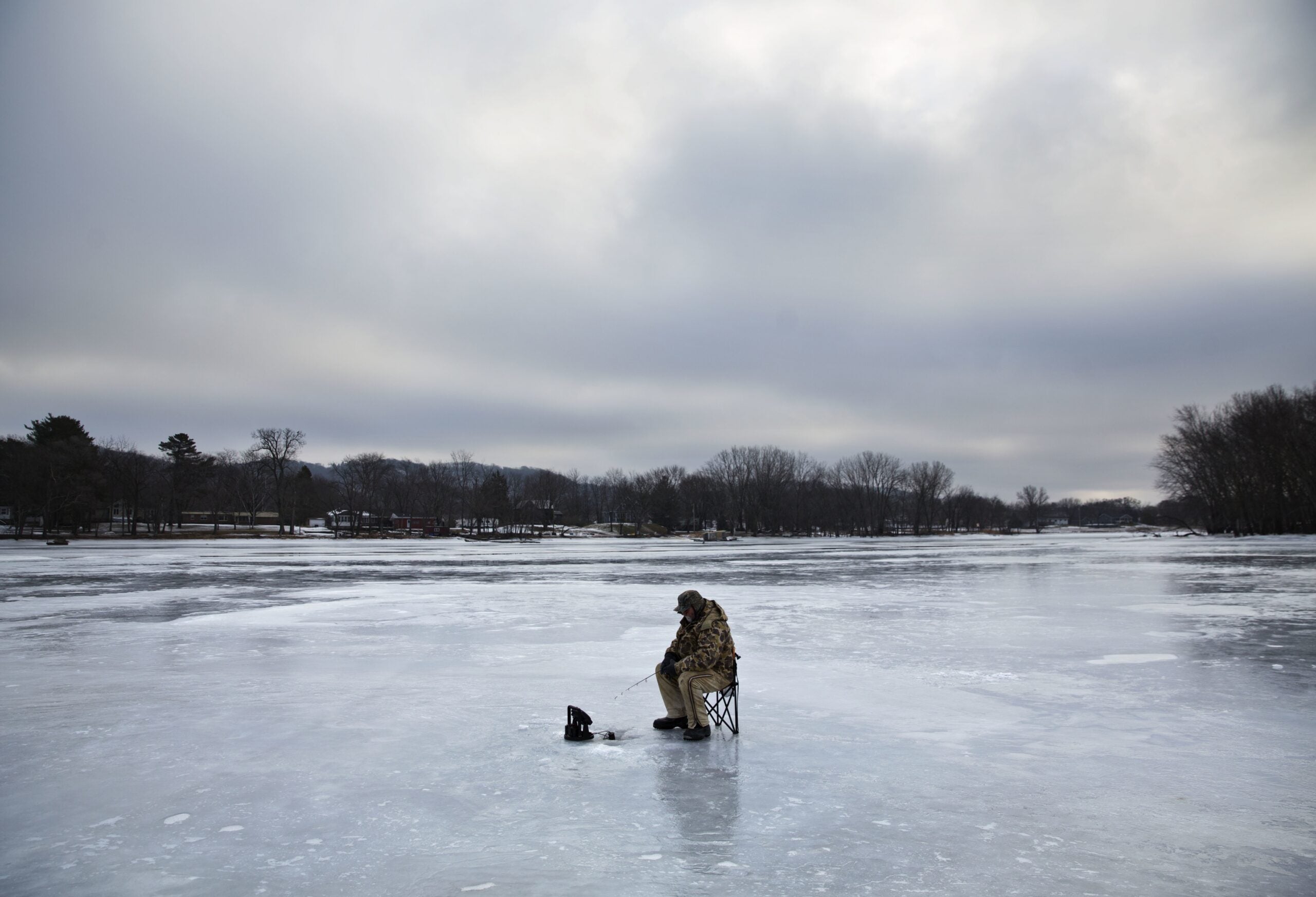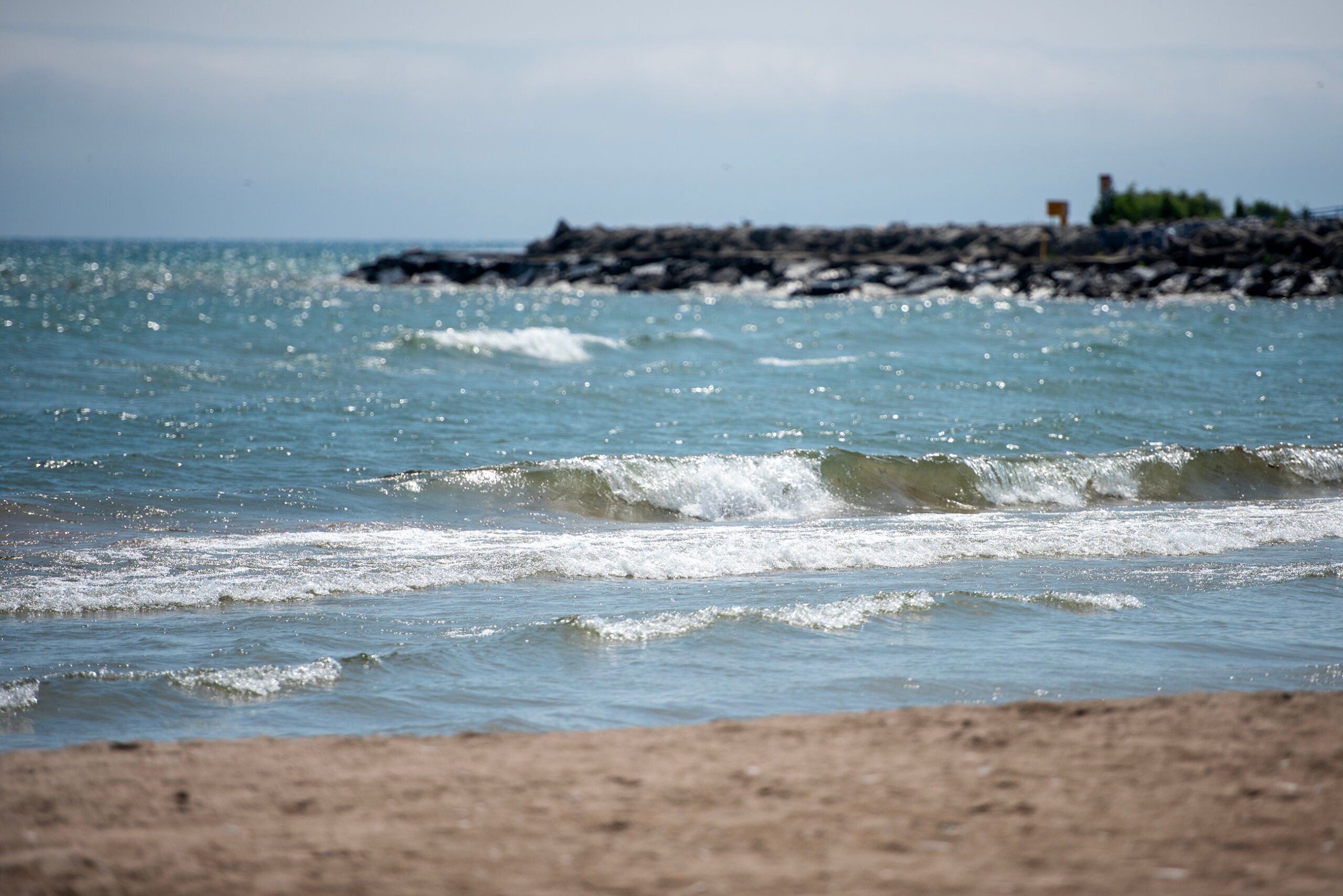As a potentially historic chill settles in over Wisconsin, residents can take some precautions to protect themselves, their homes and their pets from succumbing to the frigid conditions.
According to the National Weather Service, temperatures were already well below freezing Tuesday morning in most parts of Wisconsin, with lows the coldest in northwestern and north-central Wisconsin, mostly between 10 and 20 degrees below zero.
Wind chills are expected to plummet to a dangerous 35 degrees below zero and drop another 20 degrees by Tuesday evening in some portions of the state. Such temperatures could result in frostbite on exposed skin in as few as five minutes. Most windchill warnings across the state go into effect at 6 p.m. Tuesday and end by noon Thursday, according to the weather service.
News with a little more humanity
WPR’s “Wisconsin Today” newsletter keeps you connected to the state you love without feeling overwhelmed. No paywall. No agenda. No corporate filter.
A Wind Chill Warning means the combination of very cold air and the wind will create DANGEROUSLY low wind chill values… and they’re expected over the next two to three days across the warned area. pic.twitter.com/nb5TXwLlxd
— NWS (@NWS) January 29, 2019
Expecting that the deep freeze will be unsafe for children, school districts across the state, such as Eau Claire and Fall Creek, and Minnesota made announcements Monday night that schools would be canceled for the next few days. On Monday, Gov. Tony Evers declared a state of emergency, which puts all state agencies on guard to help emergency responders if needed.
So, with the state on high alert as it enters a deep freeze, what can you do to protect yourself and others? Here are some tips to make sure you’re safe during the frosty next few days.
Stay Warm
If you can, remain indoors.
If you have to go outside, wear three or four layers to keep your core warm. Wear hats, gloves and scarves and keep all skin covered.
The Centers for Disease Control and Prevention said hypothermia, one of the biggest dangers of being out in the cold, results from the body losing heat faster than it’s being produced. It can cause confusion and clouded judgment. Watch for early warning signs such as shivering, feeling tired and losing coordination.
Frostbite can occur when parts of the body, most commonly extremities, freeze. Signs that this is happening include numbness or tingling, stinging or pain. According to the Rock County Sheriff’s Office, skin that’s frostbitten can appear white or grayish-yellow. Rubbing isn’t advised because it can cause more damage. Instead, get to a warm area.
Also, maybe skimp on the alcohol, which decreases core body temperature.

Petr David Josek/AP Photo
Take Care Of Pets
Some pets can tolerate the cold better than others, but all pets should be brought inside when temperatures dip below freezing, according to the American Veterinary Medical Foundation.
Keep walks to 10 minutes or less.
If your pet is whining, shivering, anxious, slowing down or looking for somewhere to burrow, it could be experiencing hypothermia. Get inside as quick as you can if you notice this.
Check your dog for cracked paws or bleeding. If they suddenly go limp during a walk, it could be because of an injury or because ice has gotten between their toes. You can try to prevent this by cutting the hair between their toes.
You can use a dog coat or sweater when you take your dog outside, but make sure it’s dry.
When a pet comes inside, make sure to wipe the paws dry.
Move pet bird cages away from drafty areas.
Feral cats might like the heat of your vehicle’s engine, so before you take off, honk your horn or bang on the hood to encourage the cats to leave.
Protect Your House
Although your home is sheltering you from the cold, it’s just as susceptible to cold snaps. Take care to protect it.

Ice coats leaking pipes in a downtown Cleveland alley, in Ohio. Mark Duncan/AP Photo
Frozen pipes are especially an issue because water expands as it freezes. To help prevent this, keep your garage doors closed and turn on a faucet so that it’s slowly dripping water, just to ensure there’s still water flowing through the pipes. Open cabinets underneath your sink to ensure warm air is getting to those pipes.
At night, it helps to keep the thermostat at the same temperature. Do not let your heat fall below 55 degrees.
Pat Boland, manager of customer policy and assistance for Xcel Energy, said people should not lower their thermostats just because they’re worried about paying their utility bills.
“That next bill, we can help you figure that out, whether it’s making a payment arrangement or referring customers to energy assistance organizations,” Boland said. “We want to deal with the bill when it’s appropriate, but first and foremost is the health and safety (of residents).”
State law prohibits utility companies from shutting off someone’s heat from Nov. 1 to April 15. Each county has a home energy assistance program that can help residents make a payment on their heating bills and fix, or in some cases replace, non-operating furnaces or boilers. Residents can also access crisis assistance if they have no heat or are almost out of heating fuel.
Tom Miller, administrator of La Crosse County’s Energy Assistance Program, said people who run out of fuel or have their furnace break should call their local program immediately instead of trying to rely on unsafe heating sources.
“People whose furnaces have gone out or they’re out of fuel, they’ve mentioned that they’ve been using their stove or oven or someone has told them to do that,” Miller said. “And we always tell them that is very unsafe, make sure you close it, do not use it. We do have space heaters available to people to use until they can get their furnaces working.”
Know where the water main cut-off valve is in case you need to use it.
If you turn on the faucet and there’s no water, check to see if your water meter is frozen. If your pipes feel frozen, use a hair dryer, heat lamp, heat tape or space heater to thaw them out, as long as they haven’t already burst (and keep the faucet on when doing this).
Tina Erickson, a supervisor with the city of La Crosse Utilities Department, said over the weekend the city received four calls for internal water meters freezing because they were located in places that were not heated.
“It’s usually the out of site, out of mind that is what breaks,” Erickson said.
She suggests making sure basement water meters are getting enough heat. And external hose lines are turned off, so pipes don’t burst.
Homes with second floor bathrooms with pipes in the attic are another place to be mindful of, Erickson said. Those pipes could get too cold and burst, if they aren’t kept warm.
“It’s hard, because people aren’t always thinking about their water meters and pipes,” Erickson said.
The Menomonie Professional Firefighters are also urging residents to keep the exhaust and cold air intake of furnaces clear of snow. Blocked intakes can cause the furnace to stop heating and blocked exhausts could cause a backup of CO2 inside of the house.
To help keep the heat in a room, close drapes and blinds, except in areas where the sun in shining in.
Update Your Car Survival Kit
Keeping a kit in your car can help save you in times of emergency. Some things to consider including in your kit: jumper cables, flashlights, a first aid kit, gear for babies or a family member with special needs, food, water (at least one gallon per person per day), a basic toolkit, pet supplies, a radio, cat litter or sand, a shovel, an ice scraper, clothes, hand warmers, blankets or sleeping bags and a charged cell phone.
It helps to make sure there’s at least half a tank of gas in your vehicle so that you can run it and keep warm if you find yourself stranded.
Help Wildlife
The Raptor Education Group, based in Antigo, advises that you keep bird feeders full and put out wild bird seed for turkeys.
Don’t put out whole kernel corn for deer or turkeys; it could kill them because their metabolisms are slower. Suet blocks work well for woodpeckers, nuthatches, chickadees and cardinals. Bring the blocks in at night to thaw out.
Don’t disturb birds who are staying in place, which can help them withstand the brutal temperatures.
If you see a wild bird on the ground, put it in a cardboard box with a towel on the bottom and bring it to a warm area. Then call a wildlife rehabilitator.
Put Mail On Hold
If you can swing it, consider putting your mail on hold through Thursday. That way, there are fewer stops for the mail person to make.
Editor’s note: Hope Kirwan and Corrinne Hess contributed to this report.
Wisconsin Public Radio, © Copyright 2025, Board of Regents of the University of Wisconsin System and Wisconsin Educational Communications Board.






